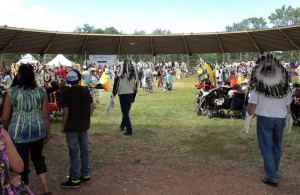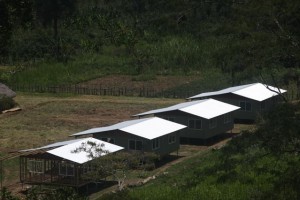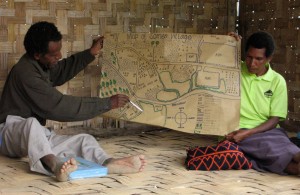Sustainable Small Business Development Acho Dene Koe First Nation
Details
Project Title: Community Environmental Service Company
Location: Ft. Liard, Northwest Territories, Canada
Date: January 2001 to August 2005
Management Team Lead: Alan R. Scheibner, Vice-President, Business Development, Alpine Environmental Services Ltd. (Alpine)
Abstract
In 2001 Alpine was approached by ADK Holdings Ltd., an Acho Dene Koe First Nation corporation, to assist in providing subcontract environmental consulting services to their newly established environmental company Nahendeh Land & Environment LLP (Nahendeh). Alpine was also to assist in the management, development and implementation of environmental services. The business agreement also incorporated administration and training responsibilities. Alpine was to assist Nahendeh in providing technical and field services to exploration, development and producing petroleum and mining companies within the lands of the Acho Dene Koe First Nation. This initial relationship was in place until Alpine was sold to the employees in 2005 whereas a new relationship was implemented to 2008.
Introduction
Alpine through the cooperation and support of its senior management team developed a business model with Nahendeh that incorporated annual business plans and administration of the company through Alpine’s administration group. Alan Scheibner as VP of Business Development from 2001 to 2005 undertook the responsibilities of developing marketing and training programs as well as assisting Nahendeh and other ADK companies in developing business opportunities. Utilizing the potential resources of the community in developing a sustainable business model, Alpine developed a 5 year environmental training workshop and field program having key objectives of developing employment opportunities and a potential for developing long term community based environmental service business opportunities (capacity building). Training programs were joint funded by industry and Acho Dene Koe government training grants.
Development of Services
Alpine assisted ADK in the development of a five year business plan that took into strong consideration the resources of the local community and potential regional clients. The five year plan identified key service opportunities and the related training programs for local people to provide these services. Determining the number of trainees was based on an assessment of the capability of Nahendeh to support a sustainable employment opportunity. Potential trainees for these training programs demonstrated both an interest in the environmental employment field and technical and field skills in completing environmental related job functions.
Quarterly business meetings were undertaken by Alpine, ADK and the Acho Dene Koe band chief and council to review business activities. Alpine provided administration support including business development and all aspects of accounting. Alan Scheibner provided advisory support to the Nahendeh manager and assisted with business development and administration file systems.
Implementation of Training Programs
The success of a training program was the result of using hands-on workshop training and related real project job sharing work experience. Alpine developed a workshop program with a strong emphasis on direct participation and limited classroom text book teaching.
The business plan identified a business opportunity to provide support services to environmental consulting companies. A key Alpine training focus was to develop the trainee as a support technician or field operator to provide field support services such as logistics or environmental technical duties assisting with environmental field sampling, monitoring and inspection services. To support this program Alpine with industry support provided Nahendeh with portable equipment cases containing soil, water and vegetation sampling equipment.
Development of Field Support Environmental Technicians
Alpine developed a training concept whereas trainees who have completed a workshop and related field training are provided an environmental technician field support certification of recognition upon successful completion of the training. A Level I Environmental Support Technician designation is given to those people who have experience in the completion of the 5 workshop sessions and related field training. This designation was an internal Alpine definition but recognized by industry that a level of regional training had been completed.
Five, two to four day workshop sessions were developed to provide introduction base line technical and sampling capabilities in the area of soil, water, vegetation, landuse and wildlife knowledge. These technical sessions provide the trainee a basic understanding of such topics as soil to help them understand and complete the various technical duties associated with the completion of field soil sampling duties.
The technical sessions are as follows:
- Classification of soil, understanding soil site conditions, soil sampling and handling practices.
- Understanding surface and groundwater, water sampling and water contamination.
- Classification and sampling of vegetation and re-vegetation procedures for reclamation.
- Identification of wildlife, wildlife habitat and related project interactions within a regional environment.
- Completion of project environmental monitoring and inspection duties.
Conclusion
Nahendeh and the business relationship with Alpine resulted in a successful business venture. The success of this venture was in part the result of Nahendeh providing to industry a competitive service and an ongoing implementation of programs that supported community benefits. Another reason for the success was the commitment of Alpine to provide management, administration and training support services. The challenge to the success of the business was limited local resources and changing local management teams as a result of elected changes with the chief and council members. The sustainability challenges will continue to exist due to the remote area, a small local population and the economics that impact industry projects. The field training approach was very successful as the trainees greatly increased their learning capacity outside the classroom. The challenge was the local social and economic changes that impacted the sustainability for ongoing employment.



